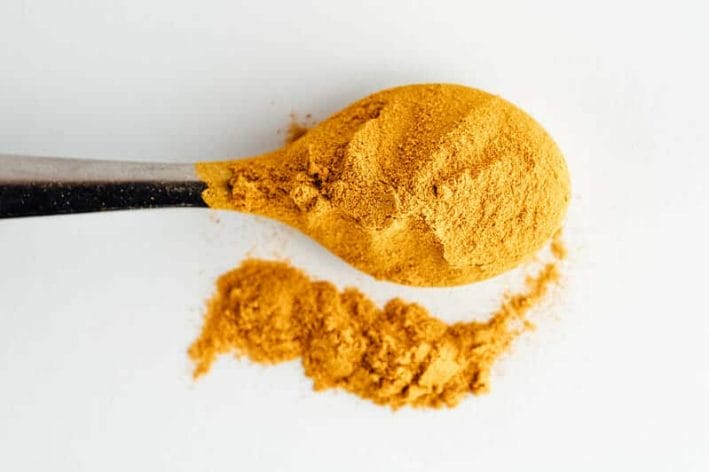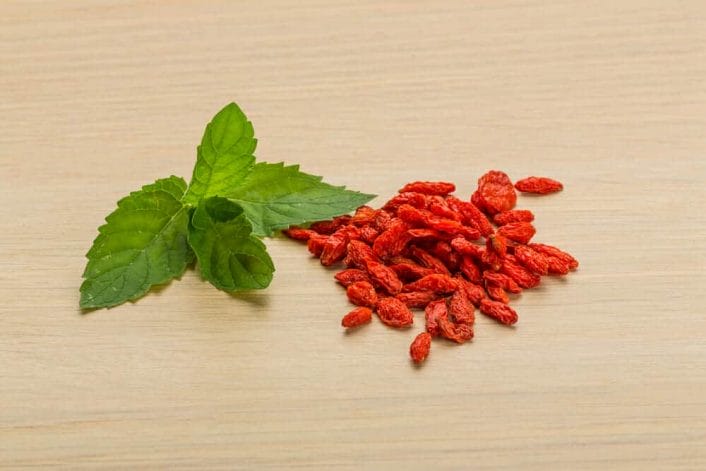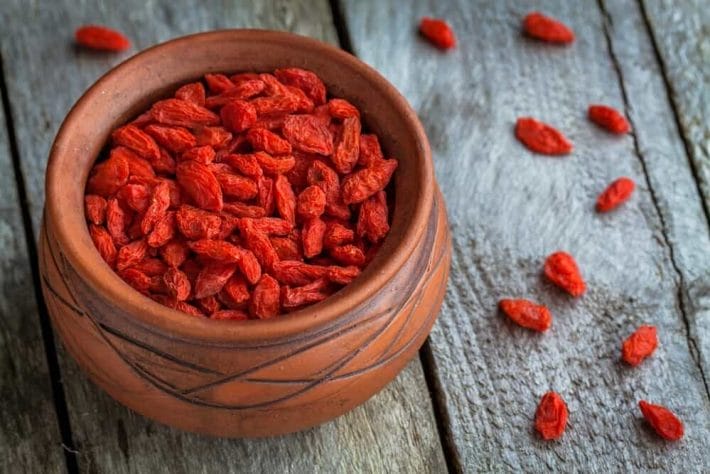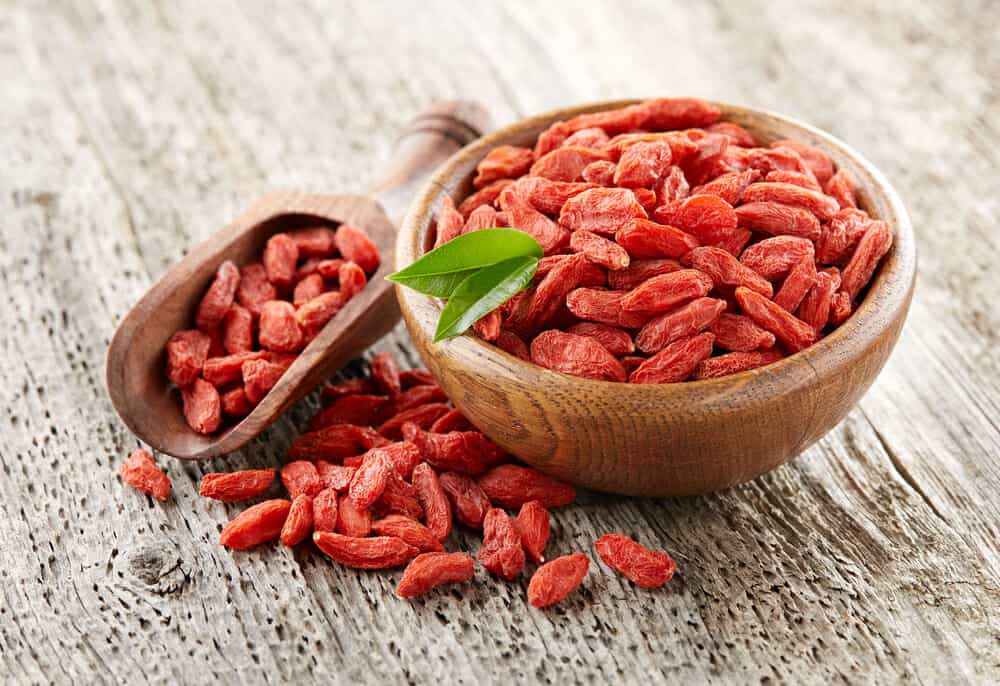Berberine is a plant substance rapidly gaining in popularity with a wide range of valuable properties. It helps regulate blood glucose levels and accelerate the rate of fat burning. Although many of us consider berberine a novelty, the substance has a centuries-long tradition. It has already been used in antiquity and occupied an important place in traditional Chinese and Indian medicine. Many centuries ago, in Europe and America, it was used as a natural remedy for various ailments. What is berberine and what properties does it have?
Table of contents
- 1 What is berberine and where is it obtained from?
- 2 Berberine – a substance with great health-promoting potential
- 3 Multiple effects of berberine
- 4 Berberine – health promoting properties
- 4.1 Berberine and blood sugar levels
- 4.2 Berberine and immunity
- 4.3 Antioxidant and anti-cancer properties of berberine
- 4.4 Berberine and the Cardiovascular System
- 4.5 Berberine and weight loss
- 4.6 Berberine and the digestive system
- 4.7 Effect of berberine on the liver
- 4.8 Berberine as support for the nervous system
- 5 Berberine – dosage, how to use it
- 6 Berberine – side effects, contraindications
What is berberine and where is it obtained from?

Berberine is one of the most bioactive plant substances used in herbal medicine and supplementation. It improves the general condition of the body, improves metabolism and combats many ailments, including those affecting the digestive and circulatory systems. It also helps reduce body fat and body weight.
Berberine has a powerful effect on the body, but at the same time remains safe for health, which has been confirmed by numerous studies on this substance.
Berberine is a plant organic compound belonging to the group of isoquinoline alkaloids. Plants containing berberine include common barberry, Indian barberry, henbit, Canadian bittercress, Chinese tincture, common mahonia, marsh duckweed, swallowtail, Amur corkwort, guduchi, California mace.
However, the main source from which berberine is extracted is the aforementioned barberry. Berberis roots, stems, leaves, fruits and bark all contain this valuable biosubstance.
Berberine – a substance with great health-promoting potential

In the form of a yellow powder, berberine displays strong biological activity and is distinguished by a wide range of positive effects on our body. It has strong antioxidant properties, reduces the risk of many civilization diseases, and increases the level of immune cells, but these are only some of the many advantages of berberine.
Due to its beneficial effects, berberine has been used in medicine since ancient times, and its fame spreads practically all over the world. Studies are constantly being conducted on the effectiveness of berberine in solving numerous health problems. Subsequent tests are very promising. There is no doubt that berberine is a substance with huge therapeutic potential.
Multiple effects of berberine
Berberine is a natural remedy for numerous ailments, especially those resulting from an unhealthy lifestyle. Bad diet, excessive use of stimulants, chronic stress and exhaustion, lack of exercise – all these factors contribute to deterioration of the organism, weakening of immunity and development of many diseases, such as overweight and obesity, heart disease, hypertension, liver disease, diabetes and insulin resistance, cancer, and atherosclerosis.
How does berberine protect our health?
- It has a preventive effect, reduces the risk of civilization diseases.
- It slows down the development of civilization diseases (including type 2 diabetes) in people who already have them.
- Regulates metabolic processes in the body, prevents overweight and obesity and the resulting health problems.
- Stimulates detoxification processes.
- Supports cell and tissue regeneration processes.
- Protects the body from harmful effects of pathogens and free radicals.
Berberine – health promoting properties
One of the most important actions of berberine is stabilizing glycemia and preventing diabetes progression, which has been confirmed by numerous research results. However, there are many more valuable properties of berberine. Let us learn the most important ones.
Berberine and blood sugar levels

Berberine has a positive effect on insulin and glucose metabolism in the body. It stimulates insulin secretion by the pancreas, activates insulin receptors, enhances the sensitivity of tissues to insulin and increases glucose uptake by cells. It also decreases glucose production in liver. By regulating carbohydrate metabolism, it prevents too rapid absorption of sugars from food into the bloodstream.
Berberine normalizes blood sugar levels, protects us from exacerbating diabetic problems, and helps us better control glycemia. It can be a valuable support for us both at the first problems with too high sugar, with insulin resistance, in the pre-diabetic state, as well as after the diagnosis of type 2 diabetes.
Read a review of an effective product for lowering sugar levels: Redusugar
Berberine and immunity
Berberine is one of the most valuable natural substances supporting our immune system. It increases the activity of macrophages, i.e. immune cells, thus making it possible for viruses, bacteria, fungi and other pathogens to be caught and eliminated faster and more effectively.
By inhibiting the expansion of viruses and microorganisms, berberine contributes to suppressing infections and colds and alleviating their course. Due to its strong antibacterial properties, it is sometimes called a natural antibiotic.
By lowering the concentration of inflammatory cytokines, berberine effectively reduces inflammation. It is helpful in the case of bacterial diarrhea, combats ear infections and staphylococcal infections. It counteracts replication of viruses such as influenza virus, HIV, HPV, herpes virus.
Antioxidant and anti-cancer properties of berberine
Berberine is also a powerful antioxidant. It fights harmful free radicals and protects our body cells from damage and premature death. It inhibits the body’s aging processes and has a positive effect on tissue regeneration.
What is important, berberine reduces the risk of cancer, destroys cancer cells and blocks the process of their multiplication (it is helpful in cases of cancer of the colon, cervix, liver, brain, breast and thyroid). Thanks to strong antioxidant properties, berberine also reduces the risk of cardiovascular diseases and neurodegenerative diseases.
Berberine and the Cardiovascular System
Berberine exhibits beneficial effects on the heart and cardiovascular system. It protects the heart muscle and normalizes the work of the heart. It lowers cholesterol and triglycerides, improves lipidogram. Improves condition of blood vessels, prevents formation of atherosclerotic plaque, thus prevents strokes and atherosclerosis. It also regulates blood pressure and reduces the risk of heart diseases.
Berberine and weight loss
Berberine contributes to limiting the process of gaining weight and at the same time stimulates the breaking down of previously accumulated fat tissue. Thanks to its high biological activity, it is one of the most valuable substances supporting the weight loss process.
It activates the AMPK enzyme, thus effectively accelerating metabolism. It guards the correct metabolism of sugars and lipids. Inhibits carbohydrate absorption from food, prevents growth of fat cells and fat tissue storage. It regulates the work of hormones affecting fat metabolism in the body, increases the rate of burning and removing fat from the body.
Berberine also protects us from attacks of increased hunger, stabilizes appetite, thus making it easier to control our diet and reduce calorie intake.
Read the review of a powerful fat reducer with berberine: Berber Fast
Berberine and the digestive system
The positive effect on the functioning of the digestive system is another valuable property of berberine. It improves the composition of intestinal microflora, namely, it increases the level of beneficial bacteria in the intestines and decreases the concentration of bad bacteria. It improves digestive processes, improves pancreas and intestinal function.
Effect of berberine on the liver
Berberine positively influences liver function, supports its detoxification and protects its cells (hepatocytes) against damage. It is helpful in liver failure caused by toxic agents such as ethanol and in liver diseases such as steatosis and fibrosis.
Berberine as support for the nervous system
Although relatively little talked about, berberine has a very beneficial effect on our nervous system. It improves cognitive functions, improves concentration and memory, and enhances the ability to assimilate knowledge. It has a positive influence on intellectual performance and promotes the formation of new neural connections.
It also shows protective effects in relation to nerve cells (neurons). Improves blood supply and oxygenation of the brain. Protects neurons from free radicals, prevents their damage and death. Helps to maintain impeccable mental fitness for longer. It prevents age-related brain diseases such as Alzheimer, senile depression and dementia.
Berberine also has a positive effect on our mood and overall mental state. It counteracts depressive disorders, combats mood swings, relieves nervous tension, and reduces stress levels.
Berberine – dosage, how to use it

Dosage of berberine may vary depending on the preparation and the amount of berberine in one serving. Sometimes one capsule or tablet of berberine per day is enough, other times two or three.
Regardless of whether we take multi-ingredient dietary supplements with berberine or berberine alone, we should always follow the instructions of the manufacturer of a given preparation and take exactly the dosage described on the leaflet or package.
The daily dose of berberine usually fluctuates between 500 mg and 1500 mg. This is a large range, but much depends on whether we use berberine prophylactically, for weight loss or for therapeutic purposes. In the case of higher amounts of berberine intake, divided doses are used.
Berberine – side effects, contraindications
Berberine is a well-studied substance which is safe for health. However, it is important not to exceed recommended doses of preparations with berberine. The substance taken in excessive amounts may cause a number of adverse effects, mainly on the gastrointestinal tract.
Possible side effects of taking large amounts of berberine
- Abdominal pains,
- vomiting,
- diarrhoea,
- constipation,
- bloating,
- stomach and intestinal cramps.
Contraindications to the use of berberine
Berberine should not be used by pregnant women and nursing mothers. It should also not be taken by children. People taking various types of medicines (e.g. diabetes drugs, antidepressants, immunosuppressants, beta-blockers, antibiotics or others) should consult a doctor before using berberine. Berberine may interact with many medications.
Check: Fat Burners Ranking
Sources:
- https://pubmed.ncbi.nlm.nih.gov/25153862/
- https://pubmed.ncbi.nlm.nih.gov/27671811/
- https://pubmed.ncbi.nlm.nih.gov/32594322/
- https://www.healthline.com/nutrition/berberine-diabetes
- https://www.healthline.com/nutrition/berberine-powerful-supplement
- https://www.medicalnewstoday.com/articles/325798

